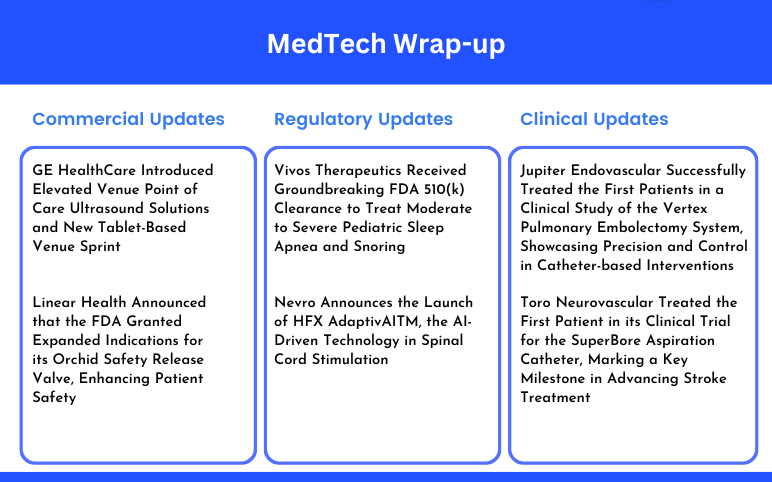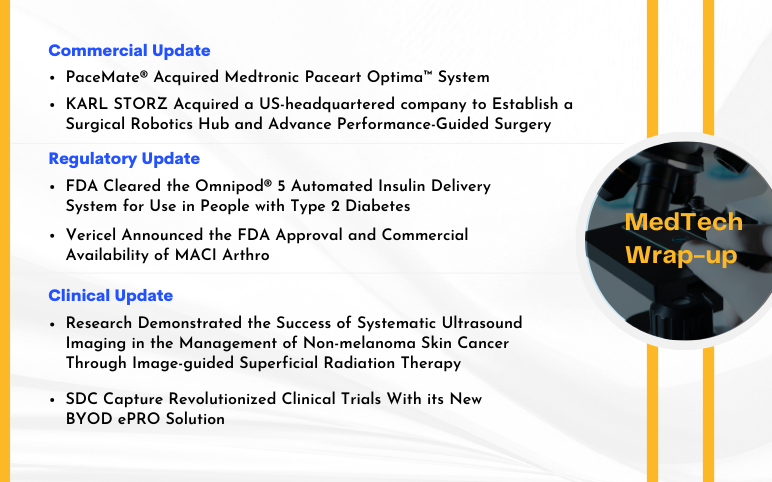The introduction of TE Air is a continuation of Mindray’s commitment to the point-of-care ultrasound (POCUS) market and its ongoing initiatives to diversify and introduce ground-breaking products to the Emergency Medicine and Critical Care markets.
Its adaptability and flexible charging options guarantee that it is not only portable but also consistently accessible, giving users the confidence to handle even the most unexpected clinical scenarios.
TE Air displays the following features:
- The TE Air delivers high-quality images with excellent resolution with its eWave platform and single crystal technology, empowering clinicians to make knowledgeable decisions at the bedside
- Clinicians can conduct ultrasound examinations more quickly and provide more precise decision-making support at the point of care with the aid of a phased array with dedicated exam pre-sets for the heart, abdomen, lung, transcranial imaging (TCI), emergency medicine (EM), trauma (FAST), EM abdominal aortic aneurysm (AAA), bladder, OB/GYN, and vascular
- The inventive Air Capsule functions as both a protective case and a portable charger
- Complete immersion with compatible disinfectants is made possible by the IP68 waterproof and dustproof design for simple disinfection
“The TE Air is a leap forward in ultrasound technology, offering comprehensive functionality inside or outside the hospital environment,” said Wayne Quinn, President of Mindray North America. Wayne Quinn added, “The new 2-in-1 innovative solution empowers clinicians to overcome the traditional constraints of cords and confined spaces giving them access to premium scanning capability when and where they need it.”
As per DelveInsight’s “Ultrasound Devices Market” report, the global ultrasound devices market was valued at USD 6.76 billion in 2022, growing at a CAGR of 6.82% during the forecast period from 2023 to 2028 to reach USD 10.05 billion by 2028. The ultrasound devices market is witnessing positive growth owing to the rising incidence of severe chronic diseases such as cardiovascular, urology, and others, further rapid technological developmental activities, growing awareness for early disease detection, and increasing geriatric population across the globe who are more susceptible to developing chronic disorders, and rising adoption owing to no radiation exposure, thereby contributing to the growth of the ultrasound devices market during the forecast period.
NuVasive’s Precice Bone Transport System Launched Globally by Globus Medical, Inc.
On September 7, 2023, Globus Medical, Inc., a leading musculoskeletal solutions company, announced the Precice Bone Transport system’s commercial launch in selected regions by NuVasive Specialised Orthopaedics (NSO). The most recent addition to the portfolio of less invasive NSOs is now CE-marked, approved, and accessible in a few markets.
Precice Bone Transport is a less invasive treatment that reduces complexity for both the patient and the surgeon. It is designed for a wide variety of bone defects. More than 250 trauma and oncology patients have benefited from the new system, which was developed in collaboration with top limb reconstruction surgeons worldwide. With the Precice magnetic adjustable technology, implants can be lengthened without surgery. More than 2,000 surgeons have implanted this tested technology 15,000 times in roughly 45 different countries.
As a division of Globus Medical, NSO is concentrated on the design and development of innovative, disruptive orthopedic solutions for limb lengthening and complex orthopedic reconstruction.
“The NSO difference is our deep commitment to making complex reconstruction simple and more reproducible,” said Pete Ligotti, leader of NSO. Pete Ligotti also commented, “The Precice Bone Transport system addresses a challenging procedure with innovation built for strength and stability, creating better patient satisfaction and a simplified surgeon experience.”
“Multiple patients of mine have already benefitted from the all-internal, Precice Bone Transport system,” said Dr. Thomas Kern, orthopedic traumatologist, BG Klinik Murnau, Germany. Dr. Thomas Kern said, “Being able to utilize the reliable Precice magnetic technology and treat more patients without the need for external fixation or amputation, is something I’m proud to be a part of.”
According to DelveInsight’s “Bone Grafts and Substitutes Market” report, the global bone grafts and substitutes market was valued at USD 3.20 billion in 2022, growing at a CAGR of 6.09% during the forecast period from 2023 to 2028 to reach USD 4.56 billion by 2028. The demand for bone grafts and substitutes is primarily witnessing growth due to the growing prevalence of degenerative bone disorders, the rising number of trauma cases, the increasing geriatric population, and the rising requirement for bone grafts and substitutes in dentistry.
alveofit® Announced the US FDA Clearance for alveoair®
On September 7, 2023, Alveofit® (Roundworks Technologies Private Limited) announced that the U.S. FDA approved the sale of its ground-breaking alveoair® spirometer in the United States. The business, which focuses on digital therapeutics for respiratory care, is dedicated to providing accessible and interoperable lung health solutions.
Alveofit® is now eligible for wider international expansion after the FDA approval from the United States and strategic alliances like the one with AstraZeneca. The alveofit is effective in the diagnosis and treatment of lung disorders like asthma and COPD.
Over 400 healthcare facilities in India are using alveoair®. Numerous patients’ lives have been improved due to collaborations with groups like the India Sweden Innovation Centre (ISIHC), NASSCOM COE, PATH, Forge Innovation & Ventures, and DST.
“It is good to see the product mature over the last couple of years and gain acceptance among the providers. I congratulate and wish Alveofit a global success with recent approval from the FDA, making a difference in the lives of people in India and the world over,” commented Sanjeev Malhotra, CEO, NASSCOM COE.
Neeraj Jain, Country Director – India and director – South Asia at PATH, commended, “alveofit® for their FDA approval, stating that PATH is actively supporting their spirometry project in Maharashtra’s Satara district for early diagnosis of chronic respiratory conditions”.
According to DelveInsight’s “Spirometers Market” report, the global spirometers market will grow at a CAGR of 4.65% during the forecast period from 2023 to 2028 to reach USD 1,801.66 million by 2028. The spirometer market is observing optimistic market growth due to factors such as the rising prevalence of various respiratory disorders such as asthma, COPD, bronchitis, lung cancer, and others. Further, the surging geriatric population and increasing exposure to dust, fumes, airborne chemicals, smoking, and others will also drive the market of spirometer market in the given forecast period. Additionally, the increasing launches of technologically advanced products and the presence of key players in the market will also spur the demand for spirometers in the market in the given forecast period. Therefore, the market for spirometers is estimated to grow at a substantial CAGR during the forecast period from 2023 to 2028.
Limaca Medical Received FDA 510(k) Clearance for its Breakthrough Precision GI™ Endoscopic Biopsy Device
On September 11, 2023, Limaca Medical announced that its Precision GI™ Endoscopic Ultrasound (EUS) Biopsy Device received 510(k) clearance from the U.S. Food and Drug Administration.
The approval was received after Limaca’s Precision GI device was given FDA Breakthrough Device Designation.
The Precision GI Endoscopic Biopsy Device from Limaca Medical features a rotating cutting needle that rotates motorized and automatically to collect high-quality tissue.
The Precision GI Endoscopic Biopsy Device from Limaca Medical features a rotating cutting needle that rotates motorized and automatically to collect high-quality tissue.
In comparison to competing products, Precision GI obtains biopsies more quickly and painlessly for the definitive diagnosis of pancreatic cancer and other life-threatening GI cancers. The automated system is intended to produce biopsy tissue of a significantly higher quality and quantity, which will allow for a more accurate and timely diagnosis of GI cancers.
“While all existing endoscopic ultrasound fine needle biopsy (EUS-FNB) devices require manual hand operation, Precision GI™ features a unique motorized, automated rotational cutting needle for successful, safe, and high-quality tissue acquisition. Today’s endoscopic biopsy devices have limitations in consistently obtaining quality tissue with sufficient quantity, which can result in sample tissue fragmentation, inadequate tissue amount, and blood contamination,” commented Prof. Iyad Khamaysi, MD, Director of the Invasive Endoscopy Unit at the Rambam Health Care Campus.
Assaf Klein, Limaca CEO, commented, “Our first series of patients have demonstrated that Precision GI™ enables obtaining contiguous intact core tissue samples adequate for definitive diagnoses of pancreatic lesions. The clean, non-contaminated tissue samples provide a high percentage of tumor content, with less blood and extraneous fluids. FDA clearance allows us to bring Precision GI™ to market to fulfill our mission to always achieve precise, efficient, and definitive biopsy samples.”
Carl Rickenbaugh, Limaca Vice Chair, added, “We are pleased with FDA’s clearance of Precision GI™, following our FDA Breakthrough Device Designation. We are dedicated to our mission to provide a far better endoscopic biopsy experience for the endoscopist and patient, to achieve faster, more efficient biopsy yield with highly consistent results. We look forward to soon bringing Precision GI™ to patients in the US.”
According to DelveInsight’s “Biopsy Devices Market” report, the global biopsy devices market is anticipated to grow at a CAGR of 5.1% during the forecast period from 2023 to 2028. The biopsy device market is witnessing positive growth owing to various factors such as the increasing prevalence of breast cancer, GI cancer, and pancreatic cancer, the rise in the geriatric population, and rising technological advancements concerning product offerings. Therefore, the market for biopsy devices is estimated to grow during the forecast period from 2023 to 2028.
Evolution Optiks Launched Clinical Study of Neuro-Optical Testing Device
On September 12, 2023, Evolution Optiks Limited, a privately held company specializing in light field technology, announced that a clinical study using its DeCon device to assess human vestibular disorders had begun. The goal of this prospective, single-site, randomized, controlled study is to assess how well the DeCon system performs in comparison to the state-of-the-art videonystagmography, a method for evaluating the inner ear and central motor functions by monitoring eye movements in response to visual stimulation and positional changes. At a clinical site in New York State, the study will involve up to 25 participants who will go through nine different tests using both devices.
The inner ear and brain regions involved in processing sensory data for balance and eye movement control make up the vestibular system. Vestibular dysfunction may be caused by disease or damage to these processing areas. Vestibular disorders can often be brought on by external brain trauma, such as falls, blows, or jolts to the head, which are frequently caused by car accidents or sports injuries. DeCon facilitates the diagnosis of vestibular dysfunction by providing access to numerous validated neurological tests that are based on visual input from the patient and cutting-edge hardware and software.
“Our DeCon unit, which is intended to be marketed under our brand name NeuroDynamiks™, relies on proprietary technology that allows for tracking and analysis of involuntary movements of the eyeball in response to stimuli within the head-mounted device. These data are simultaneously recorded on the device and, if required, can be made available remotely for interpretation by a qualified medical practitioner”, said Raul Mihali, President and Chief Executive Officer of Evolution Optiks Limited. Raul Mihali added, “DeCon’s lightweight portable design and telehealth capabilities as well as the use of light field technology are the key factors that set it apart from typical alternatives. This study allows us to compare DeCon’s performance to the industry standard.”
Dr. Mehrdad Golzad of NYC Medical & Neurological Offices where the study is conducted, a board-certified doctor of brain injury medicine and neurology with broad expertise in traumatic brain injury-related balance disorders, said, “This clinical study brings a new and highly promising approach to vestibular screening and rehabilitation. A device like this would be an asset at every sports venue, school, or construction site as well as in every ambulance.”
Dr. Anne Reuter, a well-regarded specialist in neuro-optometry, binocular vision, and neurological rehabilitation and the principal investigator of the study, commented, “The fact that DeCon extracts all relevant data directly at the site of the accident or injury and a trained practitioner may not even have to be physically present is of real interest. It allows for rapid diagnosis and treatment decision-making. This is a great development in sports and accident medicine.”
According to DelveInsight’s “Neurology Devices Market” report, the global neurology devices market is estimated to grow at a CAGR of 7.46% during the forecast period from 2023 to 2028. The neurology devices market is observing optimistic market growth due to factors such as a rise in the number of regulatory approvals for neurology devices across the globe. Further, the increasing cases of head injuries owing to accidents, workplace injuries, and others, and the rise in the geriatric population coupled with the increasing prevalence of neurological diseases are going to increase the demand for various neurological devices across the globe. Additionally, the growing focus on improving the safety, affordability, and usability of neurology devices for end users is further expected to result in appreciable revenue growth in the neurology devices market during the forecast period (2023-2028).
Moderna Expanded Field of mRNA Medicine with Positive Clinical Results across Cancer, Rare Disease, and Infectious Disease
On September 13, 2023, Moderna, Inc., announced clinical updates across its franchises and introduced several new development programs.
The various developments include:
- Separate Phase I/II data showed higher HAI titers than Fluzone HD, and the company’s flu vaccine, mRNA-1010, achieved its primary endpoint in a Phase III trial
- The company announced the completion of the RSV BLA filing (mRNA-1345), the completion of adult enrollment in the Phase III trial of the first-in-class CMV vaccine (mRNA-1647), and the Phase III trial of the next-generation COVID-19 vaccine (mRNA-1283)
- Later this year, the Company, in collaboration with its partner Merck, plans to launch a second Phase III trial of mRNA-4157, its neoantigen therapy (INT), in combination with Keytruda® for non-small cell lung cancer; an updated efficacy follow-up from the ongoing Phase II study in adjuvant melanoma is anticipated in Q4 of this year
- The company has three chronic rare disease medications with demonstrated potential for clinical benefit in patients, including mRNA-3705, a treatment for methylmalonic acidemia, which recently had positive clinical data announced
The Company anticipates that over the following five years, up to 15 new products addressing significant unmet needs will be released, up to 50 new candidates will enter clinical trials, and the field of mRNA will continue to be expanded into new applications.
“Our mRNA platform is working. With today’s positive Phase III flu results, along with previous results in COVID and RSV, we are now three for three on advancing respiratory disease programs to positive Phase III data,” said Stéphane Bancel, Chief Executive Officer of Moderna. “In the near term, we look forward to product launches in our oncology, latent, rare, and infectious disease franchises. In the fourth quarter of this year, we also expect to provide data on our next-generation COVID and flu combination, mRNA-1083, and additional efficacy analysis on our Phase II INT study. With significant momentum across the business and our pipeline, we are excited by the near future and focused on execution.”According to DelveInsight’s “mRNA Vaccines and Therapeutics Market” report, the global mRNA Vaccines and Therapeutics market was valued at USD 71,263 million in 2022, growing at a CAGR of -34.01% during the forecast period from 2023 to 2028. The demand for mRNA vaccines and therapeutics is primarily being boosted due to the rising demand for protection against sudden pandemic outbreaks, the increasing patient pool associated with infectious diseases across the globe, the rise in the number of ongoing clinical trials for various indications among others, leading to a significant impact on the market growth during the forecast period from 2023-2028.



